The african american flag emoji has become an important symbol of identity, pride, and cultural representation in digital communication. While there is no official Unicode emoji that is specifically called the african american flag emoji, many people use a combination of the Black Flag emoji, the American Flag emoji, and other related symbols to represent African American heritage. In this article, we will explore its origins, how it is commonly used, and why it holds meaning for millions of people online. We will also guide you on how to find, copy, and use it in your own messages and social media posts.
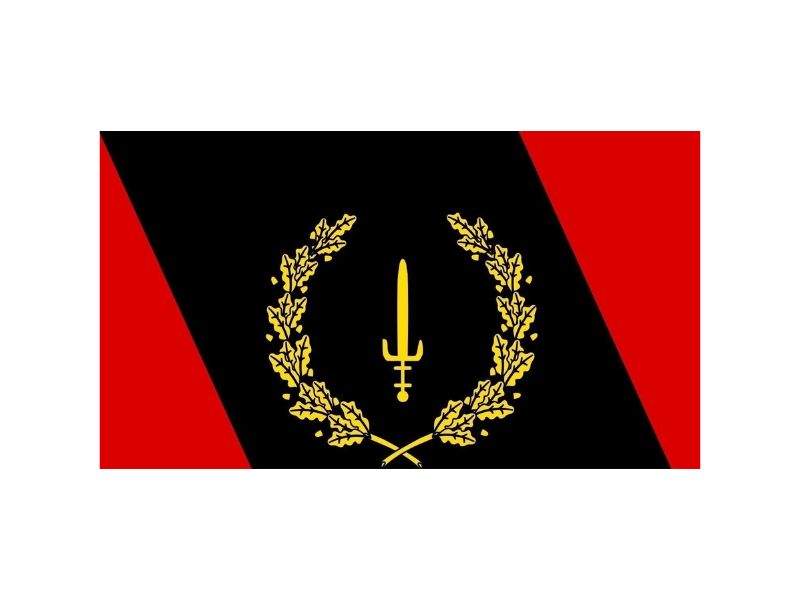
Understanding The African American Flag Emoji
The african american flag emoji is not a single official Unicode character but a symbolic representation created through emoji combinations. Often, users combine the American Flag emoji with a Black Flag emoji or other symbols such as raised fist ✊ to express solidarity, pride, and cultural identity. This creative use of existing emojis shows how communities adapt technology to represent themselves when an official option does not yet exist.
The idea behind the african american flag emoji reflects both patriotism and recognition of the unique cultural history of African Americans. It can be used to show support during cultural events like Juneteenth, Black History Month, and other significant days.
Historical Context And Cultural Meaning
The symbolism of the african american flag emoji draws inspiration from real-life flags such as the Pan-African flag and designs representing African American heritage. The Pan-African flag, created in 1920 by Marcus Garvey and the Universal Negro Improvement Association (UNIA), features red, black, and green stripes. Red symbolizes the blood shed for freedom, black represents the people, and green stands for the rich land of Africa.
While the african american flag emoji is a digital creation, it mirrors these cultural elements. Its use online shows how people bring historical pride into modern communication. For many, posting or sending the african american flag emoji is a way to honor history, express unity, and share cultural awareness in a global digital space.
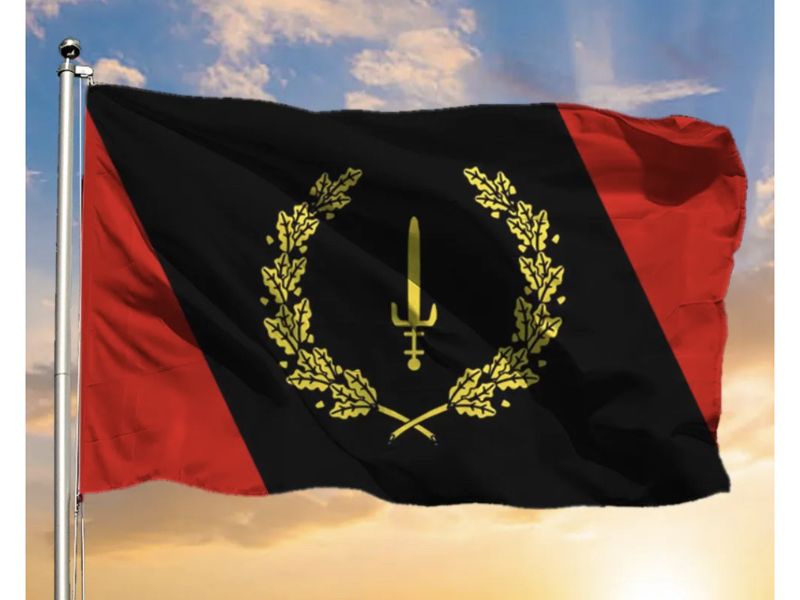
Common Ways To Use The African American Flag Emoji
- Cultural Celebrations – People share the african american flag emoji during Juneteenth, Martin Luther King Jr. Day, and Black History Month to highlight African American heritage.
- Social Media Campaigns – Activists and organizations use the emoji to show support for racial equality movements.
- Personal Identity – Individuals may add the emoji to their bios, captions, or usernames to reflect cultural pride.
- Messages Of Solidarity – Sending the emoji in private chats or group conversations can be a sign of support and recognition.
- Art And Creativity – Graphic designers and content creators integrate the emoji into digital art, posts, and storytelling.
How To Type Or Copy The African American Flag Emoji
Because there is no single Unicode emoji for the african american flag, you can create one by combining existing emojis:
- + = American flag and black flag together
- ✊ + = Raised fist with American flag for solidarity
- ❤️ + = Pan-African colors with American flag
To use them, simply copy the combination from a website or your device’s emoji keyboard and paste it into your message or post. Many emoji databases online offer ready-to-use combinations for the african american flag emoji.
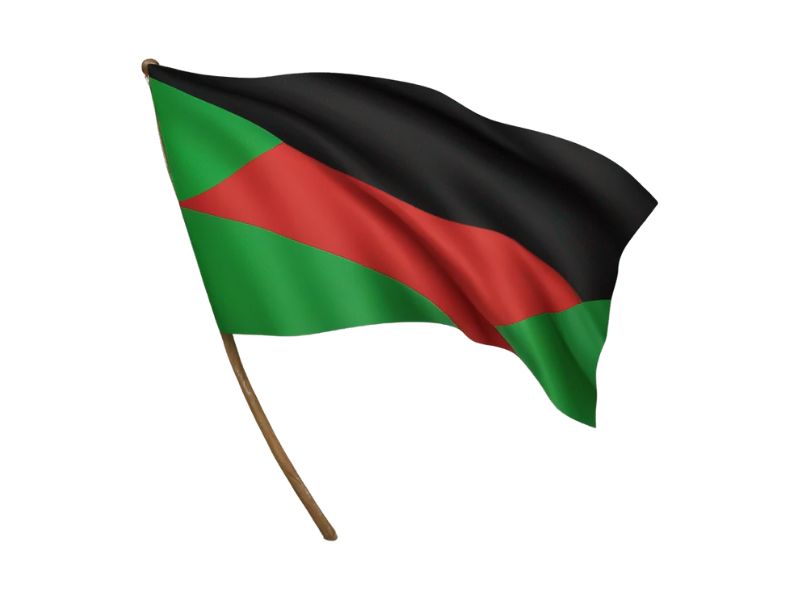
Importance In Digital Communication
The african american flag emoji shows how language evolves in the digital age. Emojis are no longer just playful icons; they are cultural tools. Communities use them to express values, history, and identity. For African Americans, having a recognizable digital symbol adds to the sense of representation in global conversations.
While Unicode has expanded to include more skin tones, cultural symbols, and diversity-focused icons, some communities still create unofficial combinations like the african american flag emoji to fill representation gaps.
The Role Of Social Media In Popularizing The Emoji
Social media platforms like Twitter, Instagram, and TikTok have played a major role in spreading the use of the african american flag emoji. Hashtags linked to cultural events often include the emoji to attract attention and build solidarity. Influencers and community leaders also use it to connect with their audience on topics of race, history, and identity.
The emoji’s popularity shows that digital platforms are powerful spaces for cultural storytelling. Through just a few symbols, people can communicate complex ideas and deep emotions.
Debates Around Representation
Some users argue that Unicode should create an official african american flag emoji to recognize African American heritage in the same way national flags and other cultural symbols are represented. Others feel that the current creative combinations are flexible and allow for personal interpretation. Regardless, the existence and use of the african american flag emoji underline the ongoing conversation about diversity and inclusion in digital communication.
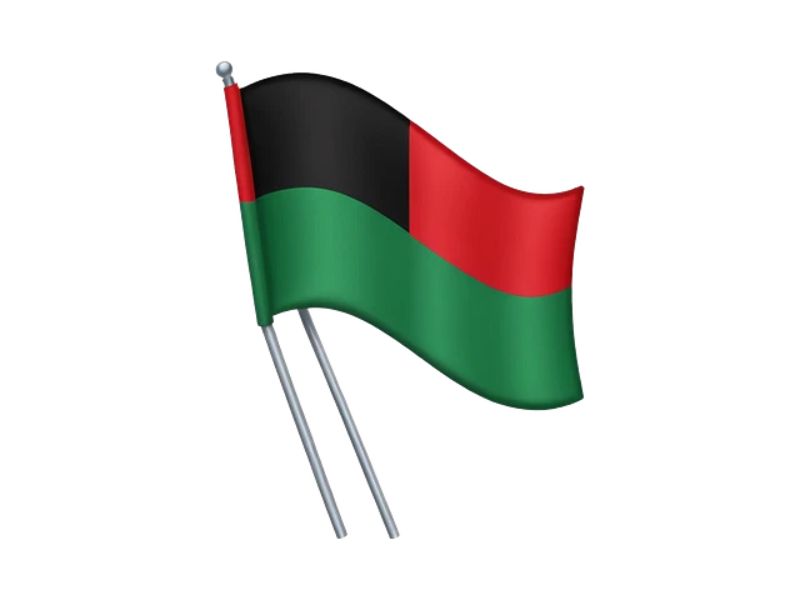
Tips For Using The African American Flag Emoji Respectfully
- Understand The Meaning – Learn its cultural and historical background before using it.
- Avoid Misuse – Do not use it in contexts that mock or misrepresent African American culture.
- Pair With Positive Messages – When posting, combine the emoji with supportive and uplifting words.
- Stay Updated – Follow cultural discussions to understand how the emoji’s meaning evolves.
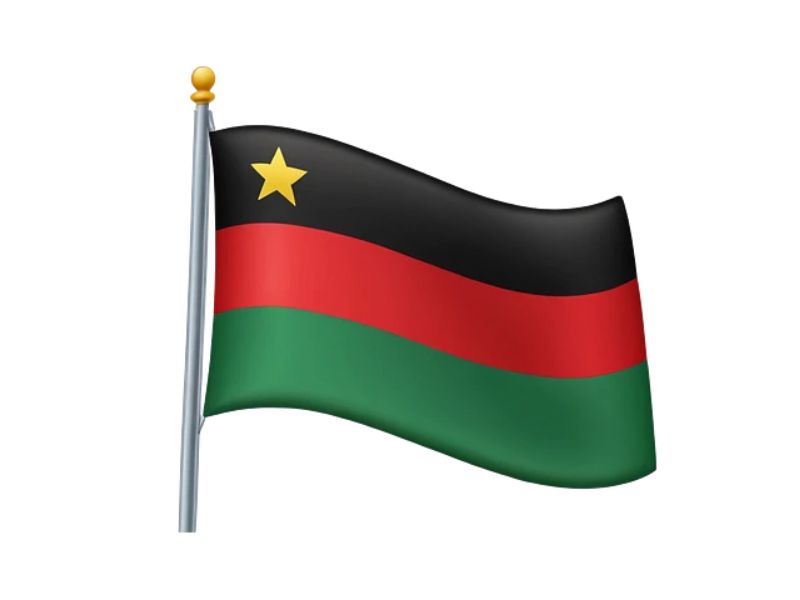
Future Possibilities For An Official Emoji
Given the growing demand for inclusive symbols, Unicode might eventually approve an official african american flag emoji. Until then, the creative combinations will continue to thrive, powered by community use and social media visibility. If approved, such an emoji could join the list of cultural and heritage flags currently available on devices worldwide.
Conclusion
The african american flag emoji is more than a visual symbol; it is a digital expression of pride, unity, and history. Even though it is not officially recognized by Unicode, its popularity proves that people will always find creative ways to represent their identity online. From social media posts to private conversations, this emoji plays an important role in connecting individuals to their heritage and sharing it with the world. As digital communication continues to evolve, the african american flag emoji will remain a meaningful emblem for cultural representation and solidarity.
For more details about emojis, visit https://emojihub.online/